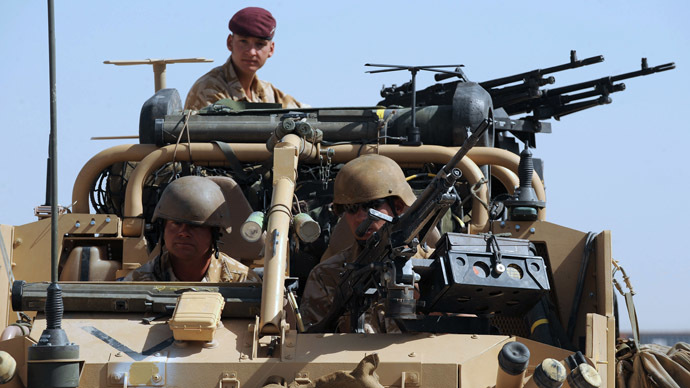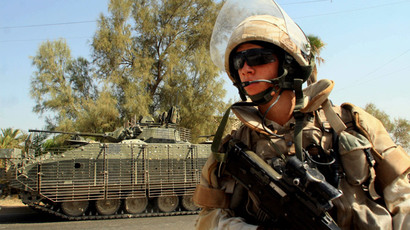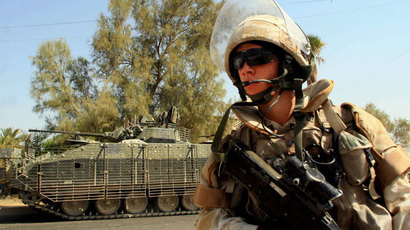UK's ‘warrior generation’ could be sent back to Afghanistan – army chief

Britain’s war in Afghanistan has given rise to a “warrior generation” ready for deployment to other global conflict zones, according to the head of the British Army.
As the UK marks the centenary of the outbreak of the First World War on Monday, General Sir Peter Wall told the Telegraph that British troops had developed skills from its decade of combat in Iraq and Afghanistan needed to provide national security in the future.
“We can be confident we have a 'warrior generation’ who have the skill and fighting ability to play their role in the nation’s defence and its security interests,” he said.
While the Afghan army will provide most of the security to the country, with NATO only providing minimal support, he also hinted that soldiers may have to return to Afghanistan if the Taliban returned, or if Al-Qaeda and other Islamist militant groups tried to regain a stronghold in the country.
"It is vital that Afghan forces continue to deal with the any threat of Al-Qaeda return to the country. For if the Taliban were to be resurgent and Al-Qaeda was again establishing sanctuaries, we would have to consider whether more effort was required on our part," he said.
The general’s statements have been criticized by many anti-war groups, who argue that he is taking advantage of the First World War centenary to promote further militarism.
Describing the loss of British soldiers during the First World War as a “terrible tragedy,” Lindsey German, convener of the Stop the War Coalition, told RT: “it is very unfortunate that [General Wall] is talking about future wars when we are seeing the terrible situation unravelling in Libya, Syria and Iraq.”
British forces are preparing to leave Afghanistan after more than 10 years of fighting, which has claimed the lives of 453 UK troops and wounded hundreds more. While most British forces will leave Afghanistan in December, 500 troops will stay in the country to provide training and logistical support to the Afghan army.
However, the general’s comments also come as the British Army faces huge cuts to its budget, in line with the coalition’s plans to cut military spending by 8 percent.
Last week, the Ministry of Defence announced a significant downsizing of the army’s tank regiment, which would reduce the number of heavily armoured vehicles from 800 in 1990 to 156 today. Meanwhile, regular soldiers in the army are to be cut by 20,000, being replaced with part-time reservists.
General Wall, 59, warned against cuts to British armed forces earlier this month, arguing that Britain faced a “growing range of threats” from ballistic missiles, terrorism and cyber warfare.
His statements follow a series of assurances regarding the capabilities of the British army by UK officials, in light of the crises in both Gaza and Ukraine.
In March, then-Defence Secretary Phillip Hammond (now Foreign Secretary) told officials in Washington that Britain “has not lost its appetite to intervene,” calling for a boost to defence spending following the secession of Crimea.
On Wednesday, Britain’s Defence Committee called the Ukrainian crisis a “wake up call” for the UK, saying NATO was not well prepared to face Russia in any military confrontation. The committee report cites serious deficiencies in the alliance’s command and control structures, its ability to predict and give adequate warning of potential attack and in the combat readiness of its forces.
Earlier this month, Hammond’s successor as Defence Secretary, Michael Fallon, reassured the press that Britain’s armed services remained “the best in the world” despite being warned that further cuts would significantly limit the efficiency of the army in future conflict.














